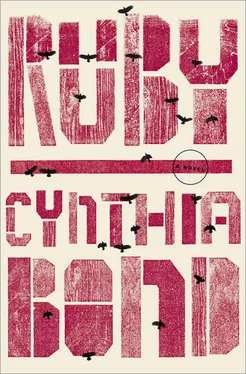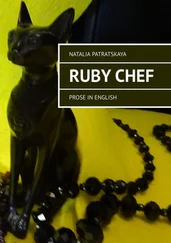Now, alone in her home, the empty pans in the shelves and unused plates in the cupboards, brought their daddy, the Reverend, to mind. The slice of loneliness heaped upon her plate when he was killed by those White men from Neches came back to her. The food she’d kept on hand for him, the smoked ham and salt pork, the pickled trotters and the hot peppers in vinegar for his greens, all waited for years until the twisted lids grew mold. Neither she nor Ephram had found the gumption to go near it.
Thirty-three years later, Celia knew that the food waiting in the refrigerator for Ephram would soon start to curl and lose its crisp. The mountains of his favorites sat in new Tupperware: fried chicken and pork chops, okra with tomato and corn, fresh yeast rolls, collard greens, black-eyed peas with butter rice, potato salad, lemon meringue pie, sweet potato pie, blackberry cobbler and more. All made with a certainty that Ephram, hungry and guilty, would surely be home by sunset with his tail on a plate.
As she looked about the house the practical business of life without him began to unroll before her. Without the new bags coming home every day from the Piggly Wiggly, her larder would soon run low. And what was she to do? Walk the mile to P & K and tote her own bags home? Past the Rankins’ land and everyone wandering down to Bloom’s Juke come evening? Even paying some young man to do it would have proved shameful, as if she had no family, no relation who cared enough to tend to her needs. Where would she get her stamps? Who would post her letters? Who would accompany her to purchase her wigs in Newton and so much more?
Celia sat upon the plastic slipcovers on her mint velour sofa. It was not only the loss of him, but who had gained. Ruby Bell was not just a girl. Celia knew what she was and how she had become that way. Celia was one of the few women in Liberty who knew about the pit fires. Others whispered over white ashes, but she had been there. She had seen the thing one evening and seen the girl who took delight in sin and debauchery. That girl was Ruby Bell.
Celia felt her stomach grip and churn with fear for her boy. A hunger rose from her body, and she crept into the kitchen. Bowls upon bowls of a glistening Sunday repast waited. Celia ate. She gnawed chicken to the bone and scraped the cartilage. She gulped unchewed mouthfuls of perfectly seasoned okra, corn bread found near the back, rolls crammed too full in her mouth for her molars to bite down. She stuffed and stuffed until food fell down her gown, pushing the handfuls almost to the back of her throat, so that her breath was labored and the food locked in her throat. Then she padded to the bathroom, knelt down on the pink shag throw rug. Her hands met her lips, her fingers white from pressing together. She let them part and slid two fingers into her throat. She pressed a secret button and up it all came in a gush. In a matter of seconds it was done. Her body shook like a train screeching to a stop. Then she was empty. After she washed her hands, she used the same two fingers to pull the lever on the toilet. She turned away as it all swirled down.
It had been years since Celia had prayed on the bathroom floor and her throat burned from the effort. At fourteen, after her mama left, it had somehow helped her to manage the business of living and raising Ephram and taking care of her daddy — but it had begun when she was twelve, the night Ruby dragged her daddy into hellfire, where he swam, and eventually drowned.
In those days, Celia trailed after her papa. She didn’t know why, except that he needed looking after. Her mama kept her eyes on Ephram and didn’t seem to care much about Celia, much less her own husband. Celia had noticed how she always looked down at the ground when he came into the room, or busied herself with the wash — any little thing to keep herself too high and proud for her daddy. Being educated like she was, she liked to lord it over him.
Everyone in the house had picked their partners. Ephram and her mama. The Reverend and his church. Celia was left alone, so she followed her daddy.
First she started walking behind him when he went to the church some off days to help the head of the Women’s Auxiliary tend to some chores. She made sure he didn’t see her; still she would wait for him in the thicket of trees. She would take little things she imagined might come in handy. A tea cake wrapped in a napkin, if he found himself out somewhere hungry. A canteen with sweet water — she’d even measured the sugar in herself. Smelling salts, a toothpick, a pack of matches and sometimes a fresh pair of socks. She invented all types of instances when he might do something like step into a mud puddle on the way to a meeting with the Church Board, and she would show up out of nowhere to clean up his shoe and hand him the socks. He might faint from all of his work, and there she would be, with sweet water and reviving salts.
So one night, when she heard her daddy going out, Celia followed after him. Her mama and Ephram fast asleep, she had thrown on her waiting school dress and shoes, then walked out into the pines. She had known he did work out in the back woods, where some folks believed in conjure and went to a Godless woman named Ma Tante.
Celia thought, That is where he must be walking, to minister to the heathens , who, she had heard, prayed to something other than Jesus. She was well practiced at walking silently behind him, and he never turned once, but walked proudly through the trees until he reached a glowing fire surrounded by men.
Celia watched her daddy smile big and set the men at ease. Some Celia knew and she was shocked to learn that they were heathens and would therefore be left behind during the rapture. She was too far away to hear him, but she watched her daddy speaking in earnest, trying to save their souls from purgatory, and sure enough, they were listening — each and every one. They nodded and Celia knew that come Sunday they would be in Marion Lake, being baptized by her father.
Then something strange happened. The flames seemed to grow larger and the wind picked up, then came little girls. Celia figured they had been sent there to bring their daddies home, until she saw Ruby Bell, who didn’t have a daddy at all — at least not one who would show his face.
When Ruby stepped out her daddy stared at her and all of his words just fell to the wayside. Celia could tell something was wrong with her daddy. The other girls started crying — but not Ruby, who stood still as anything. Celia wanted to know what was behind that fire, what was hiding out in those woods she couldn’t see. The men started shuffling too. Without her daddy’s words to stop them, they started pounding on some kind of drum and moving their lips all at the same time.
Then Celia watched a type of bedevilment take hold of her daddy. He started swaying with the drums, started moving his mouth with the other men. Celia began praying for him. She pressed her hands tight together and called on Jesus, and the Father. It didn’t help.
It seemed like her daddy, the one she poured coffee for every morning, because her mother was too slow about it — it seemed like he was gone, and this man, looking dead-eyed at Ruby, was all that was left. She wished she had brought something to help him, but nothing in her little bag would help, not even the salts.
So she began whispering her daddy’s favorite, Psalm 23, into the quiet night while tears slid down her face.
It seemed to Celia like something made her daddy hand off each child to men she had never seen, picking up a tiny wrist and laying it in a grown man’s hand.
“He maketh me to lie down in green pastures: He leadeth me beside the still waters.”
Celia felt a fist of anger and sorrow ball up in her throat.
Читать дальше












